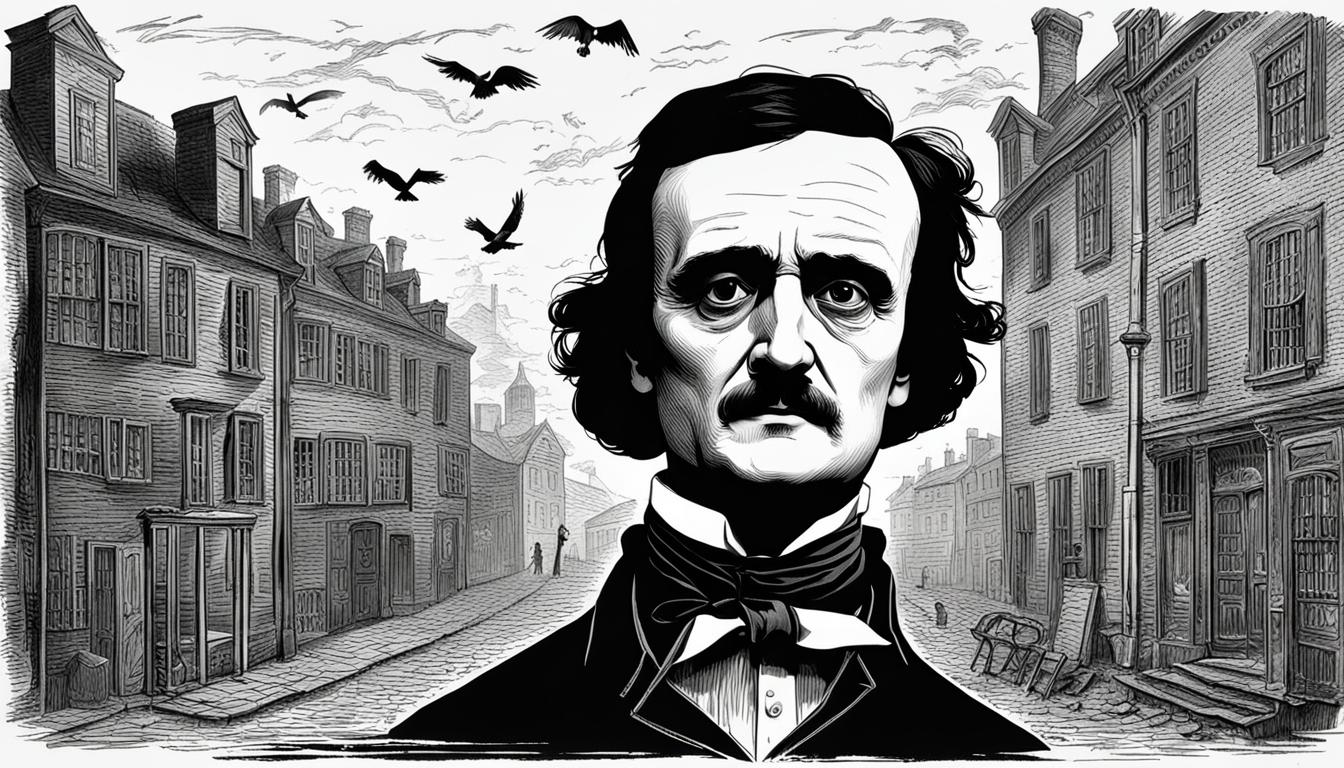The Oval Portrait by Edgar Allan Poe THE chateau into which my valet had ventured to make forcible entrance, rather than permit me, in my desperately wounded condition, to pass a night in the open air, was one of those piles of commingled gloom and grandeur which have so long frowned among the Appennines, not…
Poe, Edgar Allan

Edgar Allan Poe (1809-1849) was an American writer, poet, editor, and literary critic, widely regarded as a central figure of Romanticism in the United States and of American literature as a whole. Best known for his poetry and short stories, particularly his tales of mystery and the macabre, Poe is considered the inventor of the detective fiction genre and is further credited with contributing to the emerging genre of science fiction.
Born in Boston, Massachusetts, Poe was orphaned at a young age and taken in by John and Frances Allan of Richmond, Virginia. He attended the University of Virginia but left after a year due to lack of money. After enlisting in the Army and later failing as an officer’s cadet at West Point, Poe parted ways with the Allans. His publishing career began humbly with an anonymous collection of poems, Tamerlane and Other Poems (1827), credited only to “a Bostonian”.
Poe switched his focus to prose and spent the next several years working for literary journals and periodicals, becoming known for his own style of literary criticism. His work forced him to move among several cities, including Baltimore, Philadelphia, and New York City. In 1836, he married his 13-year-old cousin, Virginia Clemm, but she died of tuberculosis in 1847. Poe’s best known works include “The Raven” (1845), “The Fall of the House of Usher” (1839), and “The Tell-Tale Heart” (1843).
Poe’s life was marked by tragedy, including the early deaths of his mother, foster mother, and wife. He struggled with alcoholism and financial difficulties throughout his career. He died in Baltimore on October 7, 1849, at age 40, under mysterious circumstances that have never been fully explained.
Despite his short life and relatively small body of work, Poe’s imaginative storytelling and tales of mystery and horror have had a lasting influence on literature. He perfected the short story form and his poetry is notable for its musicality and haunting beauty. His themes of death, loss, and the psychological effects of guilt continue to resonate with readers today. Moreover, Poe’s literary theories, particularly his concept of the “unity of effect” in which every element of a story must contribute to its overall emotional impact, have shaped modern literature.
Poe’s enduring legacy can be seen in the many references to his work in popular culture, from literature and film to music and art. He has become an iconic figure, representing the tortured artist and the dark side of the human imagination. His influence extends beyond literature to science, where his detective story “The Murders in the Rue Morgue” (1841) has been cited as an early model of deductive reasoning and his novel “The Narrative of Arthur Gordon Pym of Nantucket” (1838) has been credited with influencing the science fiction genre.
Edgar Allan Poe was a pioneering American writer whose haunting and mysterious works have left an indelible mark on literature and popular culture. His life, as tragic and troubled as many of his tales, has only contributed to his enduring fascination. Poe’s legacy is a testament to the power of the imagination and the enduring appeal of the dark and unknown.
- William Wilson by Edgar Allan Poe
- The Tell-Tale Heart by Edgar Allan Poe
- The Purloined Letter by Edgar Allan Poe
- The Premature Burial by Edgar Allan Poe
- THE PIT AND THE PENDULUM by Edgar Allen Poe
- The Oval Portrait by Edgar Allan Poe
- THE MASQUE OF THE RED DEATH
- The Gold-Bug by Edgar Allan Poe
- THE FACTS IN THE CASE OF M. VALDEMAR by Edgar Allan Poe
- The Devil in the Belfry by Edgar Allan Poe
- The Cask of Amontillado by Edgar Allan Poe
- The Black Cat by Edgar Allan Poe
- Tell Tale Heart by Edgar Allan Poe (Video)
- SILENCE—A FABLE by Edgar Allan Poe
- Never Bet the Devil Your Head by Edgar Allan Poe
- Never Bet the Devil Your Head by Edgar Allan Poe
- House of the Fall of Usher by Edgar Allan Poe
- Berenice by Edgar Allan Poe
Tell Tale Heart by Edgar Allan Poe (Video)
Here is an animated video we just love. There are many of these on youtube, and we thought to kick off the early Halloween season (which we love so much) we would post this version of Poe’s Tell Tale Heart. It is an animated movie from 1953. We hope you enjoy all of the creepy….
THE PIT AND THE PENDULUM by Edgar Allen Poe
THE PIT AND THE PENDULUM
Impia tortorum longos hic turba furores
Sanguinis innocui, non satiata, aluit.
Sospite nunc patria, fracto nunc funeris antro,
Mors ubi dira fuit vita salusque patent.